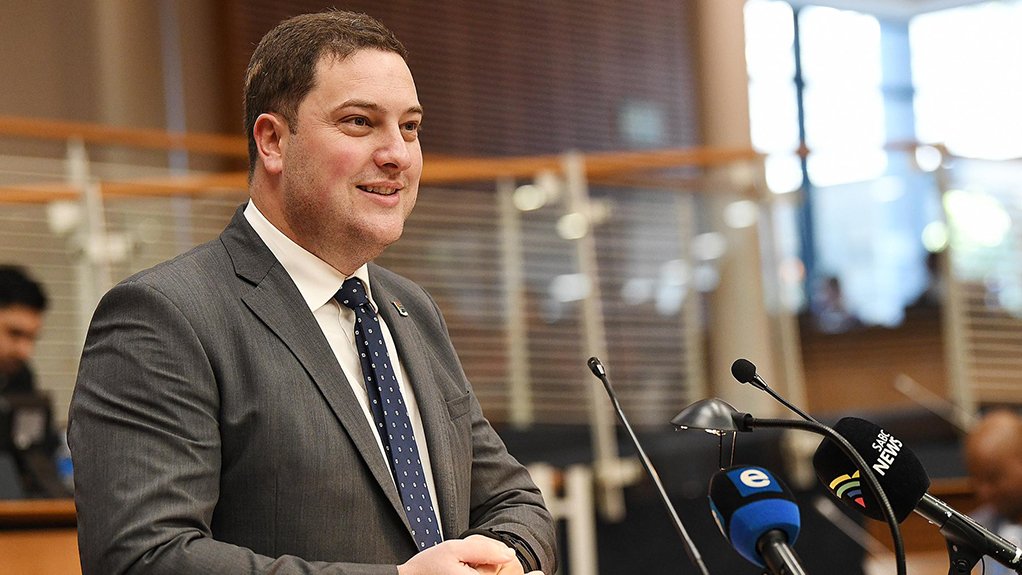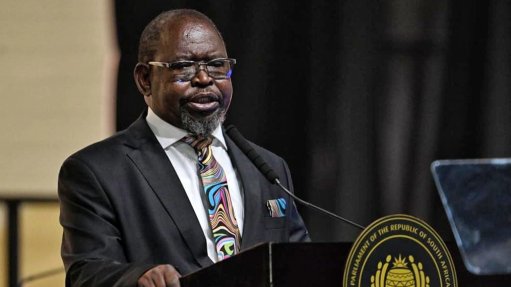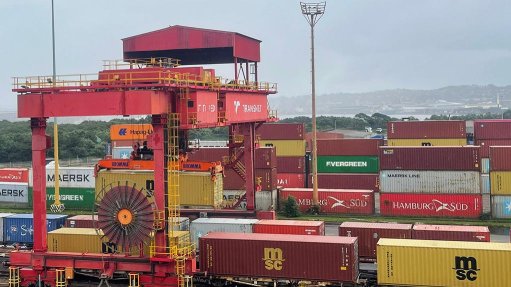Cape Town driving forward with renewable energy, climate resilience programmes
Last year, Cape Town paid out R25-million to businesses which sold their surplus renewable energy to the city. And, starting this year, private citizens will be able to do the same. These developments were highlighted by Cape Town Executive Mayor Geordin Hill-Lewis in an address to the Africa Green Economy Summit 2024, being held in Cape Town. He described this development as “the democratisation of energy” and affirmed that it “excited” him.
The city had also, over the past year, completed three rounds of utility-scale renewable energy procurement bids, with a total capacity of 600 MW. The companies concerned could now start construction of their projects. A fourth bid round was still open (it will close in mid-April).
The city was seeking to protect its residents from four levels of loadshedding, by 2026. Currently, it could only provide protection from one level. (Loadshedding is the planned rotational power cuts imposed by national electricity utility Eskom, owing to lack of generating capacity. Currently, for example, if Level 3 loadshedding is imposed nationally, Cape Town residents will normally experience Level 2 loadshedding.)
There was also the issue of climate change. Cape Town was, he asserted, “right at the coal face of environmental change”. In the past six years, the city had endured a once-in-600-year drought, and two very wet winters (one of them being last winter). Climate change, he said, was already hitting Cape Town. The city was currently building a coastal defence barrier, to cope with higher storm surges.
Moreover, its R8-billion extension of its MyCiTi bus network to Khayelitsha and Mitchells Plain would employ only electric buses. He noted that the city would have to invest in a charging network, to support them.
Further, the Mayor pointed out that, without a secure and sustainable energy supply, it would be impossible to achieve economic growth and lift people out of poverty. And the city would only be viable when it lifted its people out of poverty. “That is our highest purpose in Cape Town.” Every one of the city’s policies and programmes had to be run through the filter created by this purpose.
The city now had a population of five-million, giving it the biggest population of any single city in the country. Seventy years ago, it had had a population of 470 000. In a generation’s time, its population was expected to reach ten-million. “We have a future planning and resilience team in my office,” reported Hill-Lewis, “casting their eyes into the distant future.”
These challenges had to be met, against a national background of very weak economic growth, which was outstripped by population growth, which meant that everyone was actually getting poorer. Cape Town was doing better than the country as a whole, successfully creating jobs, but, he cautioned, the city could not truly thrive unless the country was thriving.
He cited the latest Statistics South Africa quarterly jobs report, covering the last quarter of last year, which reported 43 000 new jobs created during that quarter, in Cape Town. Employment, within the city limits, was 7% up, year-on-year, taking the number of people employed within the city to the highest level ever recorded. The city’s unemployment level, at 25%, was 15% lower than the national figure.
Moreover, the Auditor-General had given the city a clean audit for the second year in a row. “We respect every rand of public money that we spend,” affirmed Hill-Lewis. And Nedbank had, in its latest report on fixed capital investment in South Africa, reported that 60% of all government (excluding State-owned companies) fixed capital investment had been in Cape Town alone.
Article Enquiry
Email Article
Save Article
Feedback
To advertise email advertising@creamermedia.co.za or click here
Press Office
Announcements
What's On
Subscribe to improve your user experience...
Option 1 (equivalent of R125 a month):
Receive a weekly copy of Creamer Media's Engineering News & Mining Weekly magazine
(print copy for those in South Africa and e-magazine for those outside of South Africa)
Receive daily email newsletters
Access to full search results
Access archive of magazine back copies
Access to Projects in Progress
Access to ONE Research Report of your choice in PDF format
Option 2 (equivalent of R375 a month):
All benefits from Option 1
PLUS
Access to Creamer Media's Research Channel Africa for ALL Research Reports, in PDF format, on various industrial and mining sectors
including Electricity; Water; Energy Transition; Hydrogen; Roads, Rail and Ports; Coal; Gold; Platinum; Battery Metals; etc.
Already a subscriber?
Forgotten your password?
Receive weekly copy of Creamer Media's Engineering News & Mining Weekly magazine (print copy for those in South Africa and e-magazine for those outside of South Africa)
➕
Recieve daily email newsletters
➕
Access to full search results
➕
Access archive of magazine back copies
➕
Access to Projects in Progress
➕
Access to ONE Research Report of your choice in PDF format
RESEARCH CHANNEL AFRICA
R4500 (equivalent of R375 a month)
SUBSCRIBEAll benefits from Option 1
➕
Access to Creamer Media's Research Channel Africa for ALL Research Reports on various industrial and mining sectors, in PDF format, including on:
Electricity
➕
Water
➕
Energy Transition
➕
Hydrogen
➕
Roads, Rail and Ports
➕
Coal
➕
Gold
➕
Platinum
➕
Battery Metals
➕
etc.
Receive all benefits from Option 1 or Option 2 delivered to numerous people at your company
➕
Multiple User names and Passwords for simultaneous log-ins
➕
Intranet integration access to all in your organisation




















